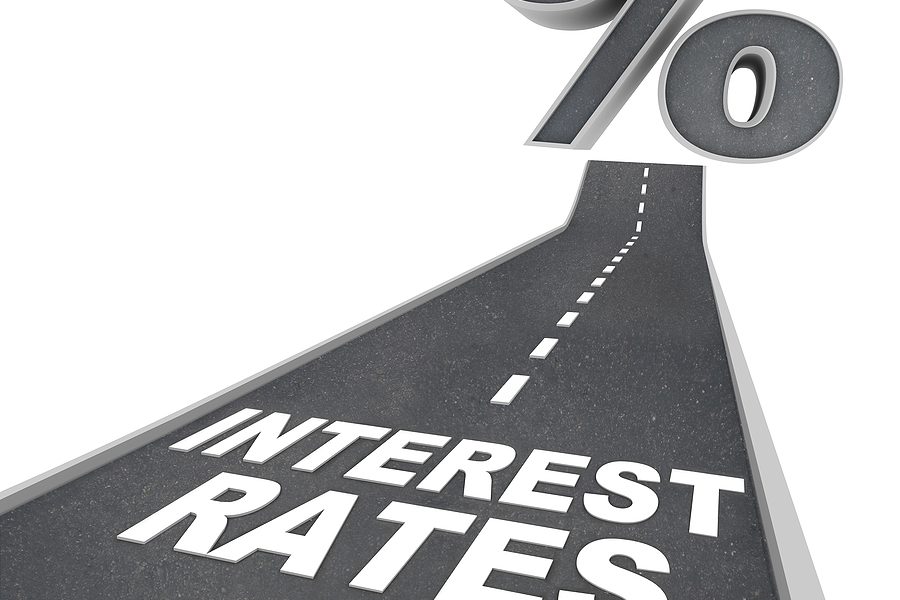In the past year, the U.S. Federal Reserve hiked interest rates eight times. Back in March 2022, the first hike brought the funds rate from 0.25% to 0.5%. Rate increases of 0.5% to 0.75% took place every few months. The last rate hike (4.75%) happened in February and brought the federal funds rate to the highest it’s been since hitting 5.25% in 2006, right before the 2007/2008 housing market crash.
These interest rate hikes impact more than consumers. They also wreak havoc on businesses. While the ultimate goal of the Federal Reserve Board is to prevent an economic collapse, there’s a lot to consider when it comes to the impact of interest rate hikes on businesses like your trucking company.
When Do They Meet?
The Federal Reserve Board has already met once in 2023. They met on January 31st and February 1st, at which point, they agreed another rate hike was necessary. The federal funds rate went from 4.5% to 4.75% after that meeting. Federal Reserve Chairman Jerome Powell made it clear that he expects rates to go much higher during 2023.
- March 21st and 22nd
- May 2nd and 3rd
- June 13th and 14th
- July 25th and 26th
- September 19th and 20th
- October 31st and November 1st
- December 12th and 13th
How high can it go? Time will tell, but historically it has gone as high as 20% (1980). In the 1980’s recession, unemployment reached over 10% and inflation doubled. The automotive industry, housing market, and steel manufacturing were hit hard and ripple effects spread out across the globe. It’s best to get prepared now just in case another recession does hit.
Why Does the Fed Approve Interest Rate Hikes?
Interest rates are affected by the Federal Reserve Board. This group of 12 bankers and other financial experts meet eight times a year to determine if the Federal rate should increase or decrease, in hopes of preventing an economic collapse. There are two things the Feds have to consider.
Inflation – The increase in prices of goods and services, which affects everyone in the nation.
Recession – A period of slowing down that’s indicative of declining economic activity, which tends to lead to layoffs and higher levels of unemployment.
The general belief is that if interest rates increase, it stops excess spending by consumers, which gives manufacturers and the shipping industry time to catch up, slow inflation, and stabilize prices.
When inflation isn’t slowing as quickly as hoped, the Federal Reserve has one of two options. They can wait longer and hope to slow the rate of inflation and prevent the odds of it increasing to a recession, or they can increase the rates again and hope even higher interest rates have more impact on leveling inflation.
But, those rate hikes impact spending. People are dealing with increasing prices on everything from grocery to heating expenses. They’re buying less, and that trickles down to trucking jobs. Truckers in some areas may notice a decrease in offers on load boards. You need to expand your coverage or lay off drivers for now. Your clients may also be struggling, which makes them pay you late. All of this impacts your ability to effectively run your business.
Protect Your Business Using These Tips
What can you do to protect your business if a recession does hit? There are a few steps to take. Some are easier than others, but they’re all important.
1. Pay Off Credit Card Debt As Quickly As Possible
If you are carrying a balance on any business credit cards, pay that balance off as quickly as you can. If you’re making payments, those payments are going to go up more. The faster you get your card paid off, the better it is for you.
You may not be able to pay off everything you own, especially if you had no choice but to rely on your card for emergency repairs on your trucks. Instead of paying once a month, start paying off portions each week or every other week. Lowering your balance makes a difference when it comes to saving money in the long run.
2. Negotiate Lower Interest Rates
Talk to your bank about a lower interest rate. If you’ve been a reliable customer for years and they’re not willing to offer a promotional interest rate to keep you, transfer your balance to another financial institution’s business credit card.
It may be a good time to take out a line of credit business loan with a smaller payment and a more favorable interest rate. Interest rates on credit cards are much higher than the interest rates on a business loan or business line of credit. Pay off as much as you can to pay that loan off as quickly as possible.
3. Expand Your Routes
It may be time to expand your routes and put extra care into planning your drivers’ trips. If you have willing drivers and trucks that can handle longer hauls, double the amount you’re willing to travel. You might find a lot more work that way.
Saint John Capital’s job-finding tool has more than a million loads to select from. You might find yourself with bigger payments on the routes. Use these tools and maps to create trips that have a full trailer there and back. You’ll make more money.
4. Get Paid Immediately
Stop waiting weeks or months to get paid by your clients. If your brokers and shippers aren’t paying invoices until the end of the month, the work you do in the first week of the month won’t get paid for a month. It’s frustrating to have to wait that long.
Saint John Capital is your partner in freight factoring arrangements. Instead of waiting weeks to get paid, get paid the same day or a day or two after you complete the job. Instead of waiting, you sell the invoice to us, we advance you the money minus a small fee, and we chase down payment from your client.
You get the money you need to keep up with bills and pay as many as you can early. All it costs is the invoice factoring fee and any fees charged by your bank for the bank transfer.
We offer a few options. You can get 50% of the pay you’re due when you pick up a load or 100% (minus fees) when you deliver it. If you have a Saint John Capital fuel card and upload your bill of ladings by noon EST, you can get paid the same day.
Ask us about our non-recourse factoring arrangements. Some invoice factoring companies use recourse factoring arrangements. What does this mean for you? If your client fails to pay the invoice when it’s due, you’re on the hook for the non-payment and must repay the factoring company the money you were advanced. A non-recourse arrangement protects you from this responsibility. You don’t have to repay the money if your client doesn’t pay
Saint John Capital helps you grow your company in turbulent financial times. Ask us about our other services that help you out, such as tracking your loads, generating invoices straight to your accounting software, and free business credit checks. As you can investigate a broker or shipper’s credit history before you take a job with them, you enjoy an extra layer of protection. Sign up today to start working with our freight factoring specialists.















